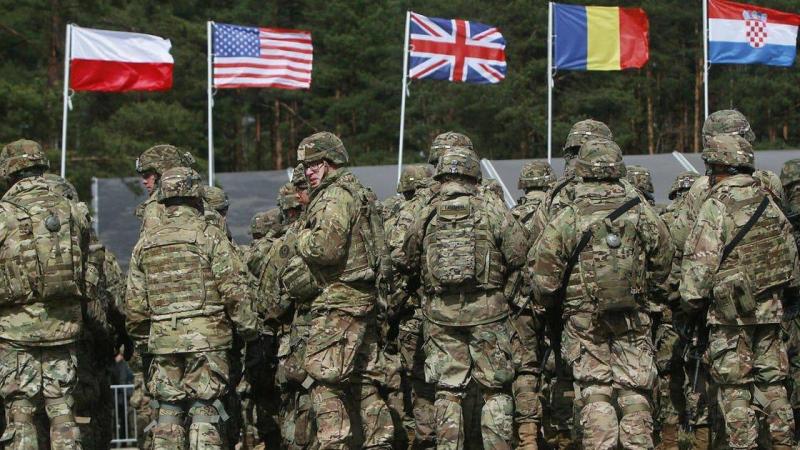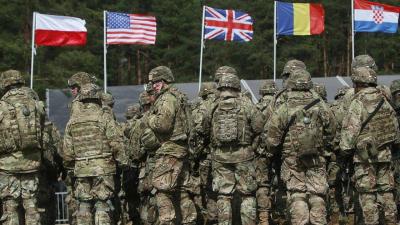NATO Secretary General Jens Stoltenberg announced on Friday that the alliance has begun deploying elements of its Response Force to enhance its defensive capabilities and ensure a swift response to any developments following the Russian military operation in Ukraine that started on Thursday. He explained to reporters after a virtual summit held by the alliance: "We are deploying for the first time the collective defense response force to prevent any expansion of the conflict into the territory of the alliance."
Stoltenberg stated that the "response is to enhance allies' deterrence and defense capabilities. The alliance activated its defense plans on Thursday and deployed elements of its Response Force." The force consists of 40,000 soldiers, centered around the Very High Readiness Joint Task Force (VJTF) which currently includes 8,000 troops led by France. It comprises a multinational brigade supported by air, naval, and special forces units. NATO indicates that some units could be ready to move within two to three days.
This is the first time that the alliance is mobilizing the "Response Forces," which are characterized by flexibility and "combat credibility that can be utilized in various ways," according to Stoltenberg. Not all of the forces will be deployed, and the alliance did not clarify the number of troops that will be sent.
Stoltenberg described this as a "historic moment," noting that it is the first time the alliance is using its forces. The Response Force is tasked with responding to emergencies within about five days but can also deploy within 48 hours if necessary.
NATO leaders stated in a post-summit announcement: "We are now undertaking significant additional defensive deployments in the eastern part of the alliance's territory." French President Emmanuel Macron announced a decision to accelerate the deployment of hundreds of French soldiers to Romania and send a new battalion to Estonia as part of the alliance's forward presence.
The Pentagon also announced the deployment of an armored brigade to Germany, increasing the number of American soldiers stationed in Europe to 100,000. UK Prime Minister Boris Johnson stated that the United Kingdom is also prepared to increase its military support for the alliance.
Alliance leaders reiterated in their statement that "the actions we are taking remain preventive and proportionate and do not amount to escalation."
It is worth noting that NATO was established in 1949 as a bulwark against the former Soviet Union and has since expanded to include 30 countries. Although Ukraine is not a NATO member, Russia has demanded that the alliance pledge never to accept Ukraine, a request the NATO members have rejected, citing the alliance's "open door" policy. NATO constitutes a collective defense system where member states agree to mutual defense in response to any attacks from outside parties. Three NATO members (the United States, France, and the United Kingdom) are permanent members of the United Nations Security Council and hold veto power, officially recognized as nuclear-armed states. NATO's headquarters is located in Brussels, Belgium, while its operational command is situated near Mons, Belgium.




